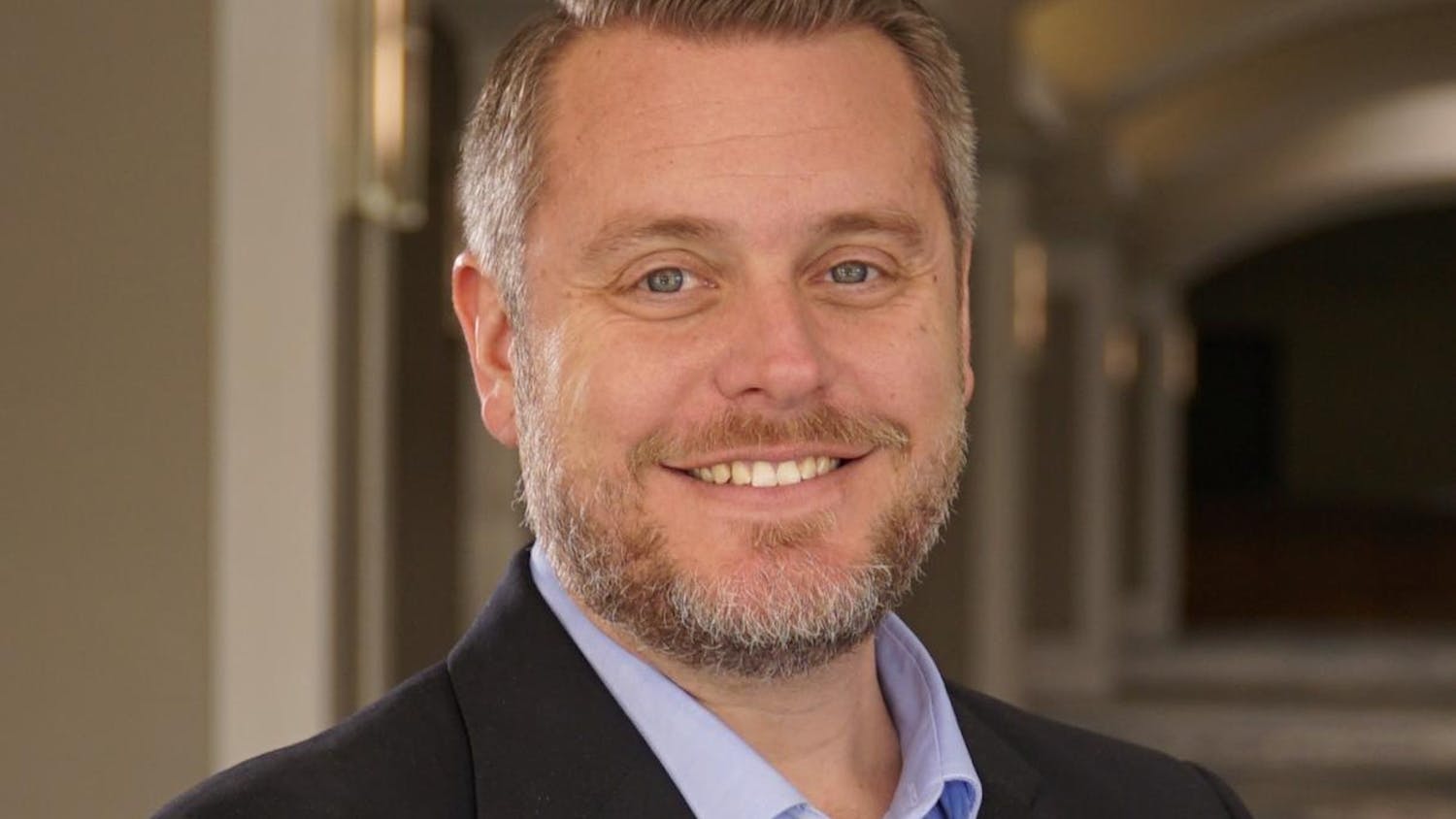David Frank has 25 years of multimedia experience with The New York Times.
UF's College of Journalism and Communications is looking to hire a multimedia expert. Frank applied for the position, but he wasn't hired.
At The Times, Frank has been the director of photography, photo assignment editor, picture editor and a video journalist, which is his current position. But Frank doesn't have a graduate degree, so his experience isn't enough for the university to consider hiring him.
This is one example of UF's growing focus on academic requirements for faculty. Colleges, such as the College of Journalism and Communications and the Rinker School of Building Construction, require graduate degrees for faculty, although the same educational standard isn't held for professionals in their respective fields.
The journalism school needs someone to run the 21st Century News Laboratory, a lab intended to provide professional-level multimedia training for journalism and telecommunication students.
UF Provost Joe Glover said that the university generally wants faculty with graduate degrees. But it's not always required. Once or twice a year, a waiver process can be used to overrule some positions' requirements, he said.
But David Ostroff, chairman of the search committee for the news lab position, said he was told by an associate provost in a hiring orientation that the requirements wouldn't be waived. Of the more than 20 applicants for the position, a number of them had excellent qualifications but did not have graduate degrees, Ostroff said.
Graduate students will be using the lab, and it would be hard for someone without a graduate degree to teach them, he said.
UF shouldn't have necessarily hired Frank, but it would've been nice to at least have considered him, said David Carlson, the executive director of the Media Center for Media Innovation and Research at the journalism school. Carlson, who will oversee the news lab, is a member of the search committee for the multimedia job.
The graduate-degree requirement has been an issue since the beginning of the search for applicants, Carlson said.
"The provost has a different view than I," he said. "The provost looks at the university in broad ways, while I see just a small part of it."
Whomever UF hires to work at the lab will report to Carlson, who doesn't have a graduate degree. In some ways, Carlson said he's less qualified than Frank.
But the graduate-degree requirements make sense because the university has said it is a research university, Ostroff said. Some universities choose to forgo accrediting their colleges. Boston University's journalism program, for one, is not accredited. It will not have any professors with doctorate degrees until UF Journalism department chairman William McKeen leaves to chair the program in fall.
UF's graduate-degree requirements are a concern to students like journalism junior Steve Johnson. Johnson met Frank last year when Frank came as a guest lecturer for a week in the fall.
"Journalism is a trade, not a profession," Johnson said.
All students benefit from learning from experienced faculty, he said.
"If you're in med school, you want to learn from doctors who are practicing," he said. "If I wanted to learn how to do open-heart surgery, I don't want to learn from someone who learned it by the book; I want to learn from someone who does open-heart surgery."
UF's journalism college wasn't always so strict about graduate degrees. Rae O. Weimer, the namesake for the college's building, didn't have an undergraduate degree when he came to UF as the head of the journalism department. He helped turn the Department of Journalism into the College of Journalism and Communications in 1967.
"In some fields, professional experience is equally important," Glover said.
He used the art program as an example. An accomplished artist might not have a graduate degree, but a waiver could be considered to bring him to UF, he said.
The search committee has chosen two finalists for the lab job who will visit the university for final interviews.
Carrie Pratt, a multimedia producer at the St. Petersburg Times and an adjunct lecturer at UF in the spring, will arrive Monday. According to her application, she expects to complete her master's degree in visual communication from Ohio University this summer.
The other finalist, Katherine Reed, is an associate professor at Missouri School of Journalism and an editor at the Columbia Missourian. She received a master's degree in creative writing from Hollins University in 1992.





